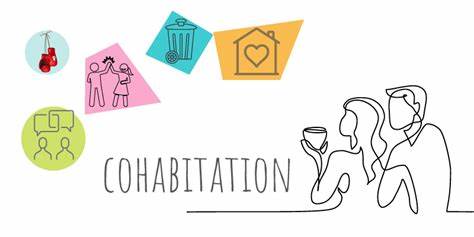Understanding Cohabitation: Legal Rights, Responsibilities, and Torts.

Cohabitation refers to living together without being married. It is a growing trend among couples worldwide. While this arrangement offers flexibility and freedom, it also comes with potential legal and emotional complexities that partners should be aware of. From property disputes to emotional distress claims, cohabitation has significant legal implications that can sometimes overlap with tort law. This blog unpacks the key aspects of cohabitation and offers insights to help couples navigate their journey responsibly.
What Is Cohabitation?
Cohabitation refers to two people living together in a domestic partnership without formalizing their relationship through marriage. While many couples view it as a step toward marriage, others choose it as a long-term alternative. However, unlike marriage, cohabitation does not automatically grant legal rights or protections unless supported by agreements or specific laws.
Legal Frameworks Governing Cohabitation
The legal recognition of cohabitation varies across jurisdictions. Here are some essential aspects:
Cohabitation Agreements
A cohabitation agreement is a legal contract that outlines the rights and responsibilities of each partner. It can include details about:
- Property ownership and division.
- Financial contributions to shared expenses.
- Dispute resolution methods.
Example: If a relationship ends, an agreement can prevent arguments over who keeps shared assets, like a home or car.
Common-Law Relationships
In some regions, couples who cohabit for a specified period may gain legal recognition as common-law partners. This status may grant them rights similar to those of married couples, including property division and spousal support.
Parental Rights
Cohabitation does not impact parental rights, but it’s essential for partners to formalize custody and support agreements if children are involved.
Torts in Cohabitation
Tort law provides remedies for civil wrongs, and cohabitation arrangements are no exception. Here’s how torts can arise in such partnerships:
- Negligence
- Defamation
- Intentional Infliction of Emotional Distress (IIED):
- Invasion of Privacy
Advice for Cohabitating Couples
Cohabitation can be a fulfilling and harmonious arrangement if approached with mutual respect and understanding. Here are some tips to navigate it successfully:
- Create a Cohabitation Agreement
Establish clear expectations about property ownership, finances, and household responsibilities. A well-drafted agreement can prevent disputes and provide legal protection.
- Communicate Openly
Regularly discuss finances, future plans, and boundaries to avoid misunderstandings. Open communication fosters trust and strengthens the relationship.
- Know Your Legal Rights
Research the cohabitation laws in your jurisdiction. Understand how property, finances, and parental rights are handled in your area.
- Be Prepared for Breakups
Cohabitation does not offer the same legal protections as marriage. Plan for the possibility of separation by documenting shared purchases and contributions to household expenses. Weird right?
- Seek Professional Advice
If disputes arise or legal questions emerge, consult a lawyer to understand your options and rights.







